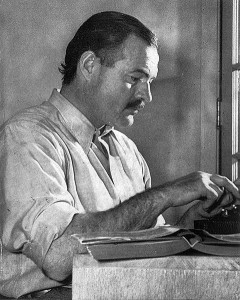The most fascinating thing in UK politics at the moment is the upcoming Scottish Referendum. It takes place on September 18, a date that is inexorably approaching. If the Scots were to vote for independence, then the consequences would be profound. For one thing, it would signal the end of the British Labour party as a potential governing party in the remaining rump of the “United Kingdom” because so many Labour MPs come from Scottish constituencies. It would also condemn the rump, at least in the short to medium term, to permanent Tory government. There are also tricky questions like whether an independent Scotland would be able to join the EU; what would happen to the UK’s only nuclear submarine base (which is located in Faslane, in Scotland); who “owns’ the remaining reserves of North Sea oil and gas; and so on.
In thinking about what would have to happen after a “Yes” vote, people have been scratching their heads for a precedent. (The Russian annexation of Crimea doesn’t count.) The nearest thing we have is what happened when Czechoslovakia split into the Czech Republic and Slovakia. Settling the outstanding issues then took five years and 10,000 separate negotiations.
For a long time the governing elite in Westminster assumed that the Scots would never be so foolish as to make the break, and so paid little attention to the awful prospect of an independent Scotland. But as the dreadful moment approaches, a certain amount of panic has set in. Most people (including me) think that, in the end, the Scots will balk at the prospect of going it alone. But it’s not a sure thing any more, and every time David Cameron goes to Scotland he swells the ranks of the ‘Yes” party. (The Tories have only a single MP in all of Scotland.)
Most intriguing of all, however, is the dilemma posed by the fact that the Scottish Referendum takes place just under a year before the next UK general election. If the Scots vote for Independence, then Scotland will become an independent state on 24 March 2016. So what would happen to (Westminster) MPs elected to represent Scottish constituencies in the UK general election. The SNP’s answer is that they will serve only a 10-month term, which itself is constitutionally dubious. And from the point of view of the rump of the former UK it would be outrageous to have a Parliament which contained 59 representatives elected by what has become a “foreign” country. And so on and so on.
One aspect of the Scottish vote that hasn’t been discussed much in Westminster is the impact that all this is having in Northern Ireland. When I was there a few months ago, signs of acute anxiety in the “Unionist” community were palpable, for very obvious reasons. The whole raison d’etre of Unionism, after all, is attachment to the “United Kingdom of Great Britain and Northern Ireland”. It’s why when you drive through the working-class protestant areas of Belfast you see gable walls and t adorned with murals of the “Union Jack”. It’s why there were violent riots every night for weeks on end when a decision was made by Belfast City Council not to fly the Union Jack from the City Hall on every day of the year.
So any threat to the unity of this United Kingdom poses an existential threat for the protestants of Northern Ireland, many of whom are descended from Scottish settlers who made their way across the Irish sea when the island of Ireland was a badly-governed British colony. So you can imagine their dismay when many of their compatriots in Scotland have apparently come to the conclusion that their treasured Union isn’t worth having.
Mostly this aspect of the Referendum seems to have escaped the attention of the British media. Not the eagle eye of the New York Times, though. In yesterday’s International edition, the paper’s London correspondent, Katrin Bennhold, had an interesting dispatch from Belfast, where she had been sampling opinion in the protestant community. She starts by reminding readers that “As early as 2012, the former leader of the Ulster Unionist Party, Tom Elliott, described the Scottish National Party as ‘a greater threat to the union than the violence of the I.R.A.'” She cites a warning by Ian Paisley Jr of the Democratic Unionist Party that if Scotland voted for independence, it could embolden dissident republicans and kindle new violence in Northern Ireland, and quotes Reg Empey, another prominent Unionist politician saying that “Northern Ireland could end up like West Pakistan with a foreign country [an independent Scotland] on one side of us and a foreign country [the Irish Republic] on the other side of us”.
And then, of course, there is the disturbing thought that, whatever happens on September 18, Britain might vote in its own referendum after the next election, to leave the EU. This would have the effect of transforming the “soft border” that currently separates Northern Ireland from the Republic into a “hard frontier” between the UK and the EU. And that could also have potentially explosive effects, given that the current porosity of the border (which I benefit from every time I visit my family) eases tensions on both sides.
Interesting times, eh?

